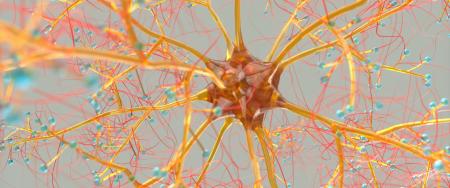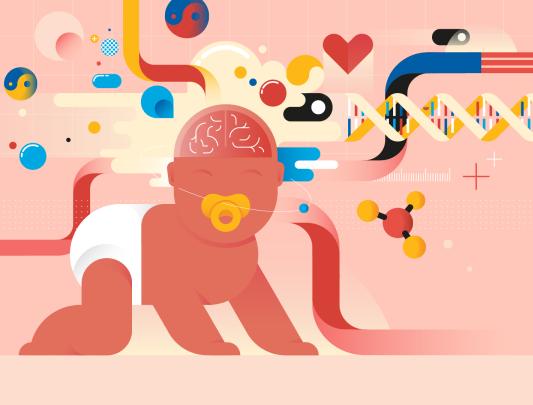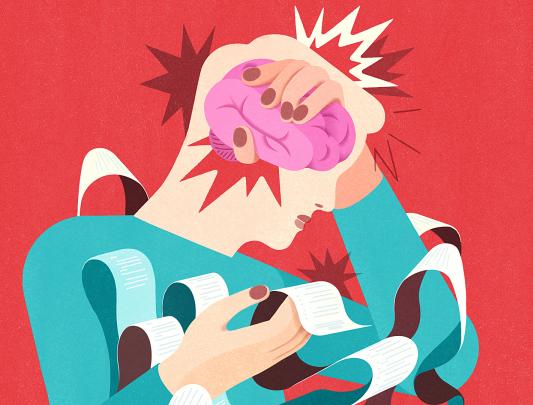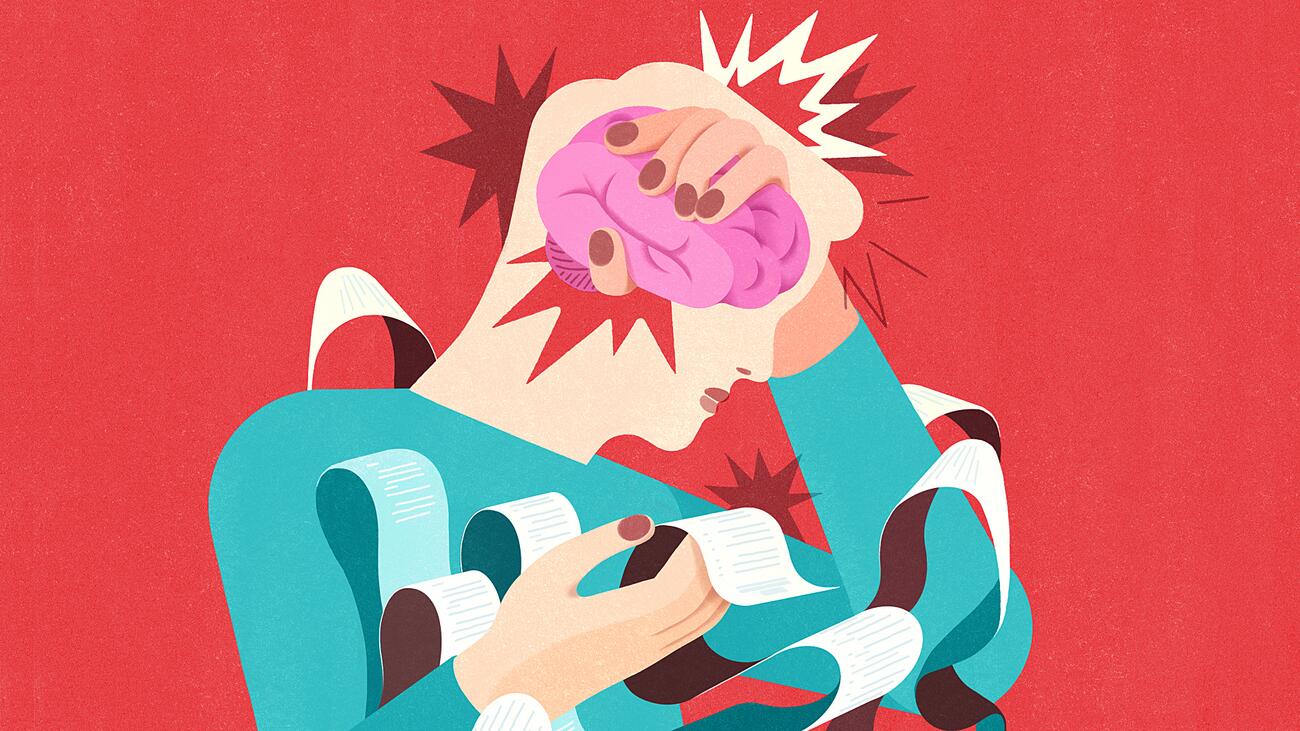
Illustrations by Gracia Lam
When stress gets in your head
The links between stress and depression are strong and mysterious. Joelle LeMoult is learning how we can feel better when things go wrong.
Think back to the spring of 2020. The streets are empty. Your favourite bar is closed. And your boss wants to try working remotely with this new “Zoom” thing. How did you feel? Were you bored and lonely? Or was all the time at home a relaxing change of pace?
Dr. Joelle LeMoult wants to know. As director of the Depression, Anxiety, and Stress Laboratory at UBC, she has devoted her research to exploring how and why we respond to stressors. These might be small things, like being stuck in a traffic jam, or big things, like a global pandemic. Why do these events motivate some of us but leave others anxious and depressed? And how can we help people feel better?
“We encounter stress in our daily lives. We encounter major life event stressors. We encounter daily hassles. And I've always just found it really fascinating to observe how differently people respond to the same stressors,” LeMoult explains.
The links between stress and depression are more mysterious than you might think. A research review that LeMoult and her colleagues recently published in Current Opinion in Psychiatry reveals how responses to stressful events vary widely from person to person.
“Even taking people in the same family who had a pretty similar experience of COVID, some people might look back and remember the positive parts of their experience, maybe the times that they got to commute less or take a break from some of the other stressors in their life,” LeMoult explains. “And someone else might look back on the same objective scenario and remember all the negatives, how lonely they felt.”
To put LeMoult’s research in terms of Winnie the Pooh characters: Some of us might respond to a stressful event like cheerful Tigger, others like gloomy Eeyore. Which one you are most likely to resemble depends on your unique set of “biopsychosocial pathways” – the tangled mix of nature and nurture that scientists are only beginning to unravel.
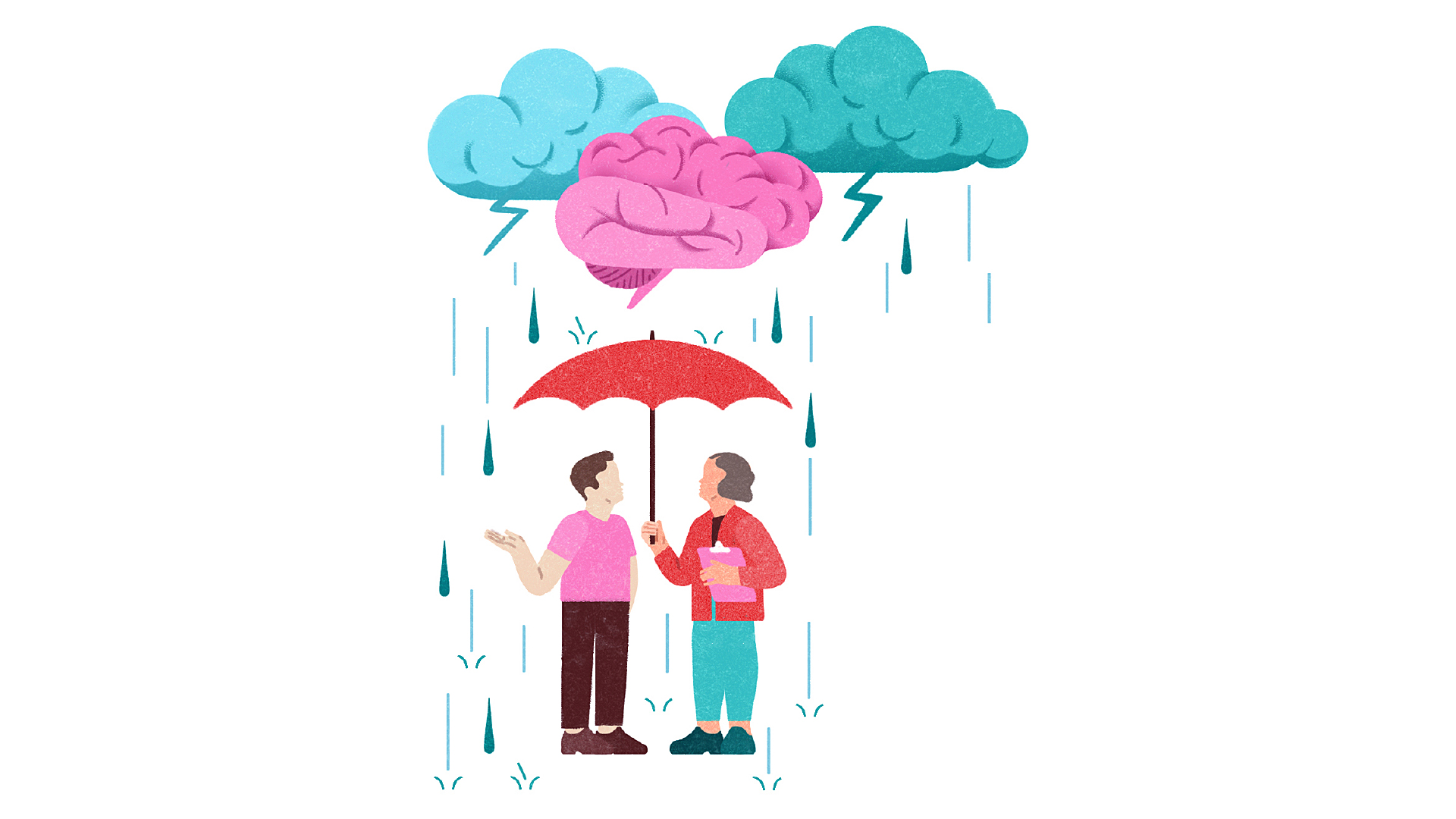
Childhood trauma, for example, can play a tremendous role in how you (or rather, your brain) deal with stress later in life. This can include poverty, physical abuse, sexual abuse, and emotional abuse. The latter, emotional abuse, may be the most dangerous of them all, according to LeMoult’s research. While something like poverty is usually a feature of one’s larger environment, she says, emotional abuse can permanently alter someone’s self-identity.
“When you've been exposed to some forms of abuse early on, it changes that idea of ‘this is who I am,’” LeMoult explains. “So for instance, a student at university who had been exposed to emotional abuse early on might, if they don't do well on an exam, have a harder time coping with that. They might develop more negative cognition about themselves and about their ability to do better on future exams. Whereas someone else might think, ‘Oh, I did badly on one exam. I'm sure the next one will go better.’”
And of course, to answer these questions scientifically, LeMoult must observe people when they get stressed out. In her experiments, LeMoult and her colleagues expose people to stressful stimuli and track things like eye movements, heart rate, and inflammation to determine levels of the stress hormone cortisol.
“Are there gender differences in how people might cope with stress?” asks LeMoult. “Are there age differences? Are there cultural differences?”
And, of course, LeMoult also experiments with ways to help people de-stress. Effective remedies, too, can vary from person to person. For example, talking about our problems can make some of us feel better, an activity psychologists call “co-reflection.” But for others, talking things out can actually lead to unhealthy “co-brooding,” which can make them feel worse.
“One of my students is really interested in self-compassion,” LeMoult continues. “Can adopting a more self-compassionate stance towards something like a recent failure facilitate emotional and biological recovery from stress?”
“Can adopting a more self-compassionate stance towards something like a recent failure facilitate emotional and biological recovery from stress?”
She adds: “I’ve been talking mostly about emotional wellbeing, but we always measure biological wellbeing too.”
Even before she decided to move into psychology, LeMoult had been fascinated with the way stress can affect not only how we feel, but also the decisions we make. She had originally studied economics and business in college, but during a job at Stanford University’s neuroeconomics lab, she became fascinated by the way our emotions influence the decisions we make.
“The more time I spent in the psychology department, the more fascinated I was by the influence that our emotions have over so many of our decisions, not just economic ones.”
Sometimes, stress makes us want to sit in a dark room, eat ice cream, and binge Netflix. But it can also make us lash out at loved ones, text an ex, or do something else we’ll regret later.
Fortunately, scientists like LeMoult are trying to learn how to make us all feel better.
























